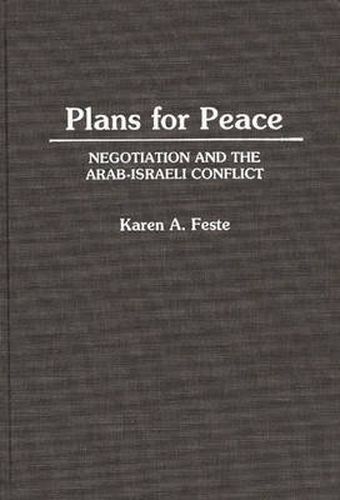Readings Newsletter
Become a Readings Member to make your shopping experience even easier.
Sign in or sign up for free!
You’re not far away from qualifying for FREE standard shipping within Australia
You’ve qualified for FREE standard shipping within Australia
The cart is loading…






Much has been written about the Arab-Israeli conflict and about general theories of negotiation, but analysis and history links major issues and peace plans to negotiation theory and strategy. Feste studies the basic structures of conflict and negotiation, offering no suggestions for radical solution but arguing for changes in approach that may bring about steps forward. This overview of all major peace efforts since 1947 and of negotiating strategies is intended for undergraduate and graduate courses in conflict resolution, Middle Eastern politics, and international relations; and for the use of political scientists, sociologists, students, and teachers concerned with ethnoconflict. The text analyzes the framework of the Arab-Israeli conflict, how it has built up, and how it has been maintained. The structure of the negotiation process is then viewed in the same way. Key elements in the Arab-Israeli conflict are considered historically and related directly to the process of negotiation and to theories about positional and principled bargaining and tactics needed in a pre-negotiation period and during negotiation to produce more successful results.
$9.00 standard shipping within Australia
FREE standard shipping within Australia for orders over $100.00
Express & International shipping calculated at checkout
Much has been written about the Arab-Israeli conflict and about general theories of negotiation, but analysis and history links major issues and peace plans to negotiation theory and strategy. Feste studies the basic structures of conflict and negotiation, offering no suggestions for radical solution but arguing for changes in approach that may bring about steps forward. This overview of all major peace efforts since 1947 and of negotiating strategies is intended for undergraduate and graduate courses in conflict resolution, Middle Eastern politics, and international relations; and for the use of political scientists, sociologists, students, and teachers concerned with ethnoconflict. The text analyzes the framework of the Arab-Israeli conflict, how it has built up, and how it has been maintained. The structure of the negotiation process is then viewed in the same way. Key elements in the Arab-Israeli conflict are considered historically and related directly to the process of negotiation and to theories about positional and principled bargaining and tactics needed in a pre-negotiation period and during negotiation to produce more successful results.